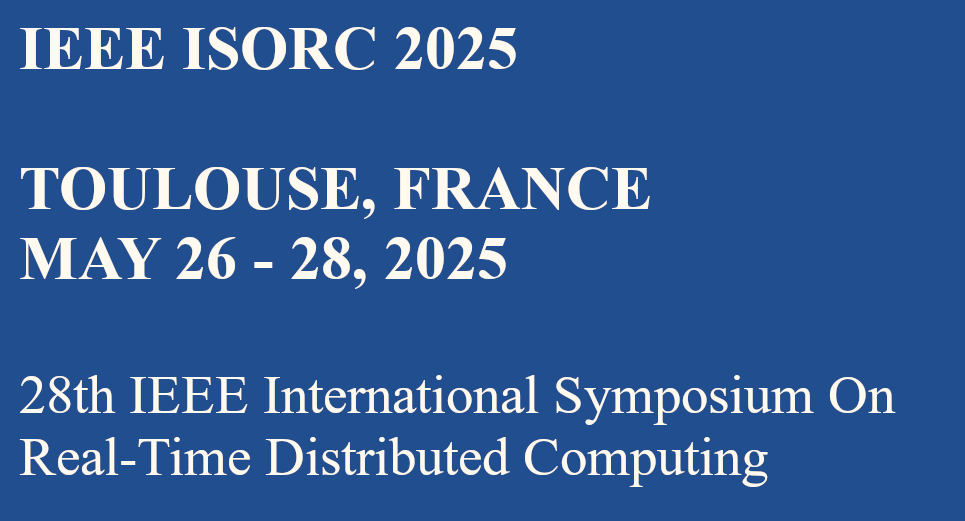
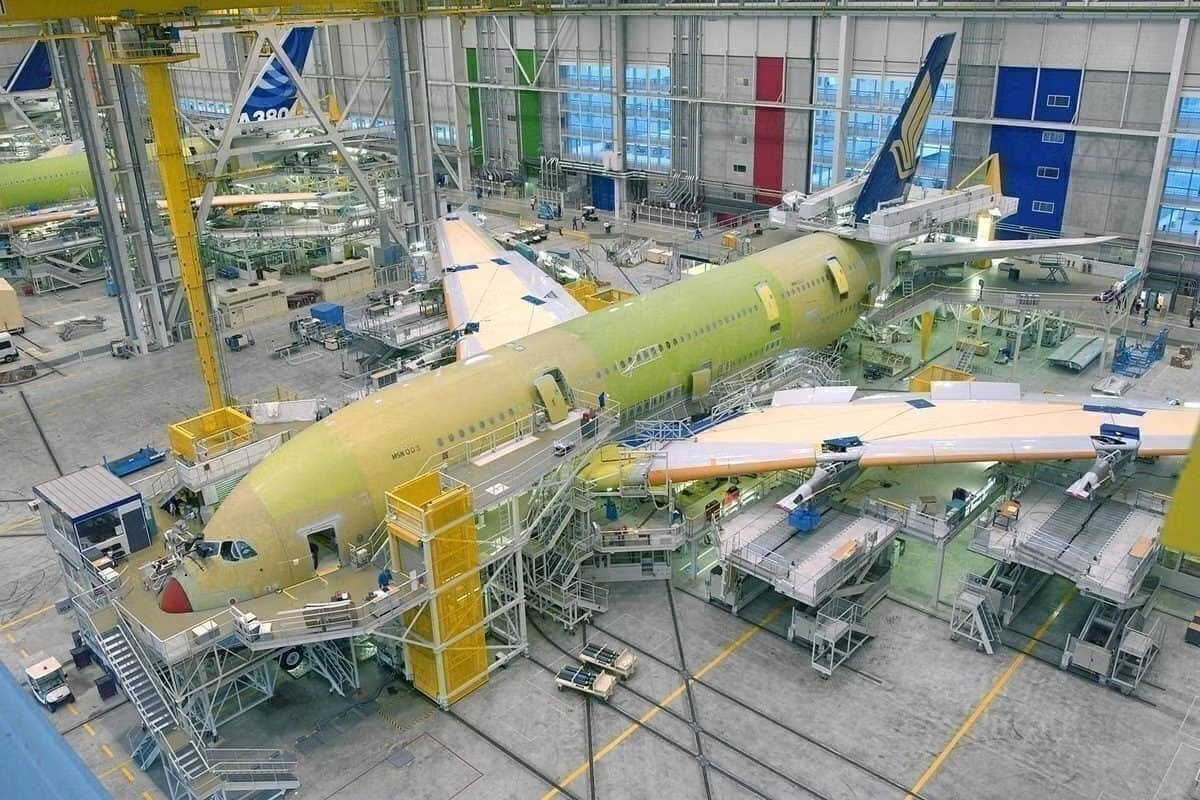











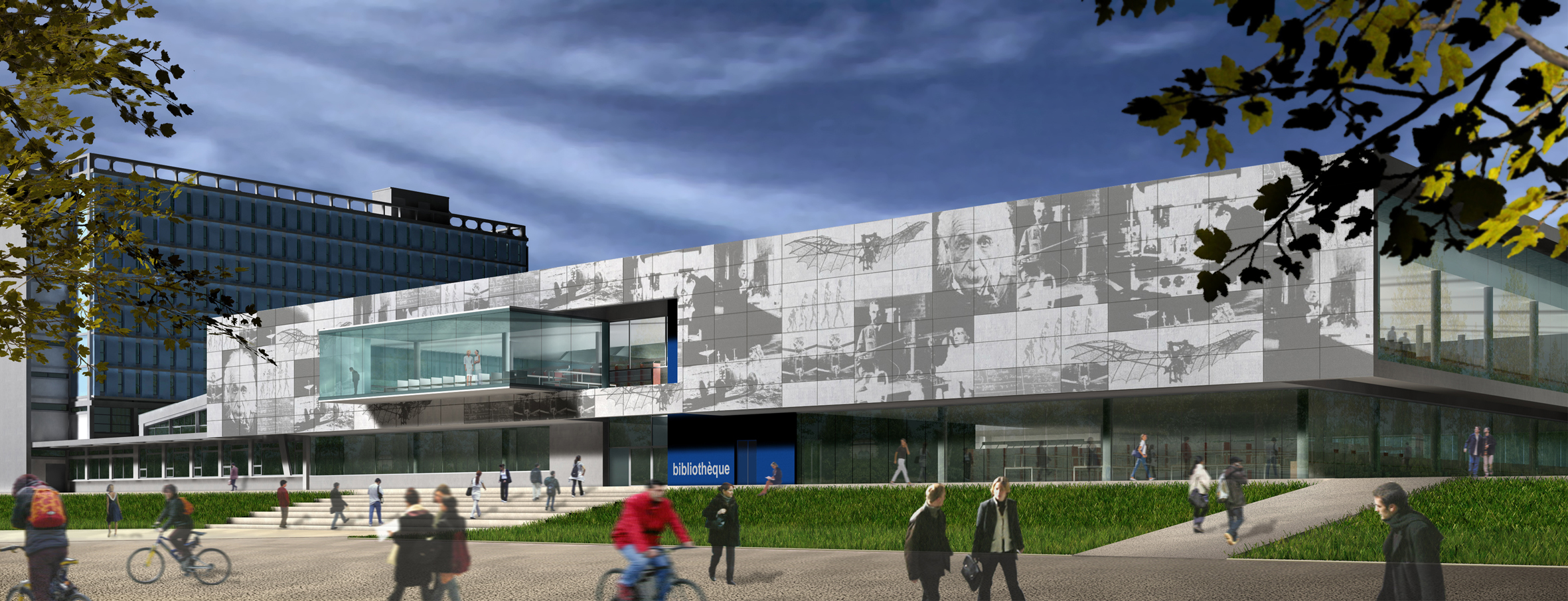

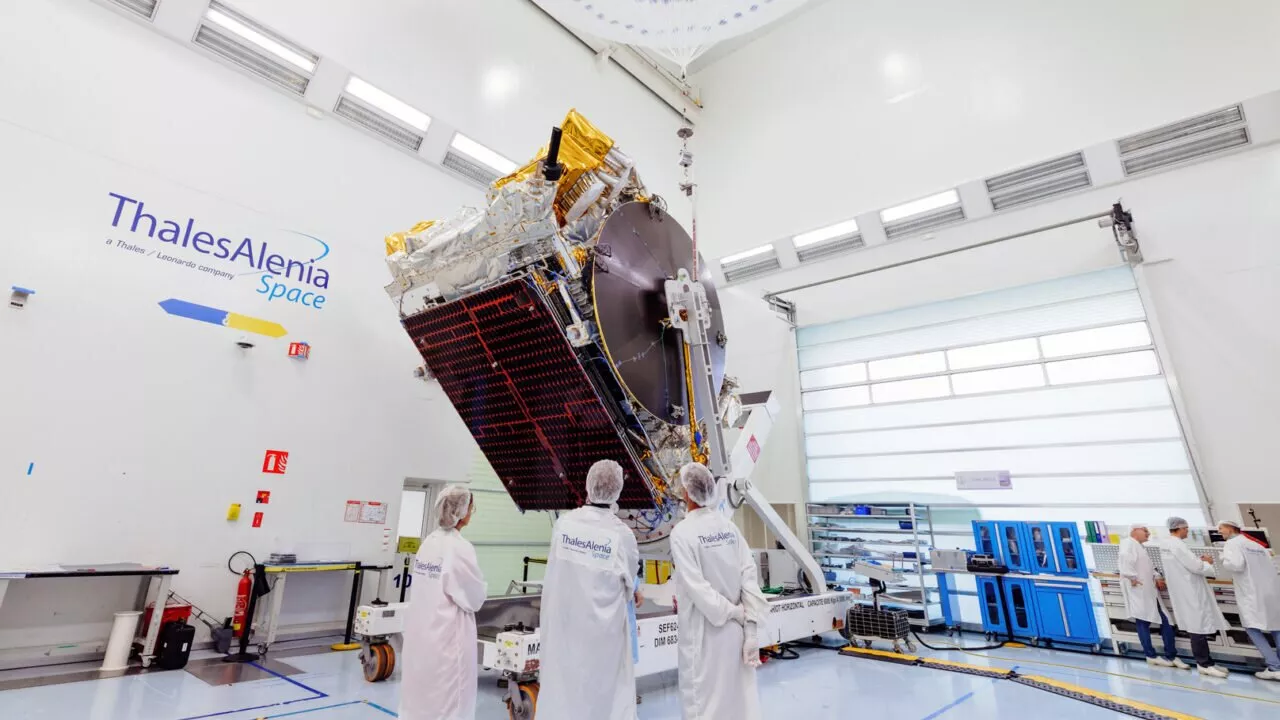



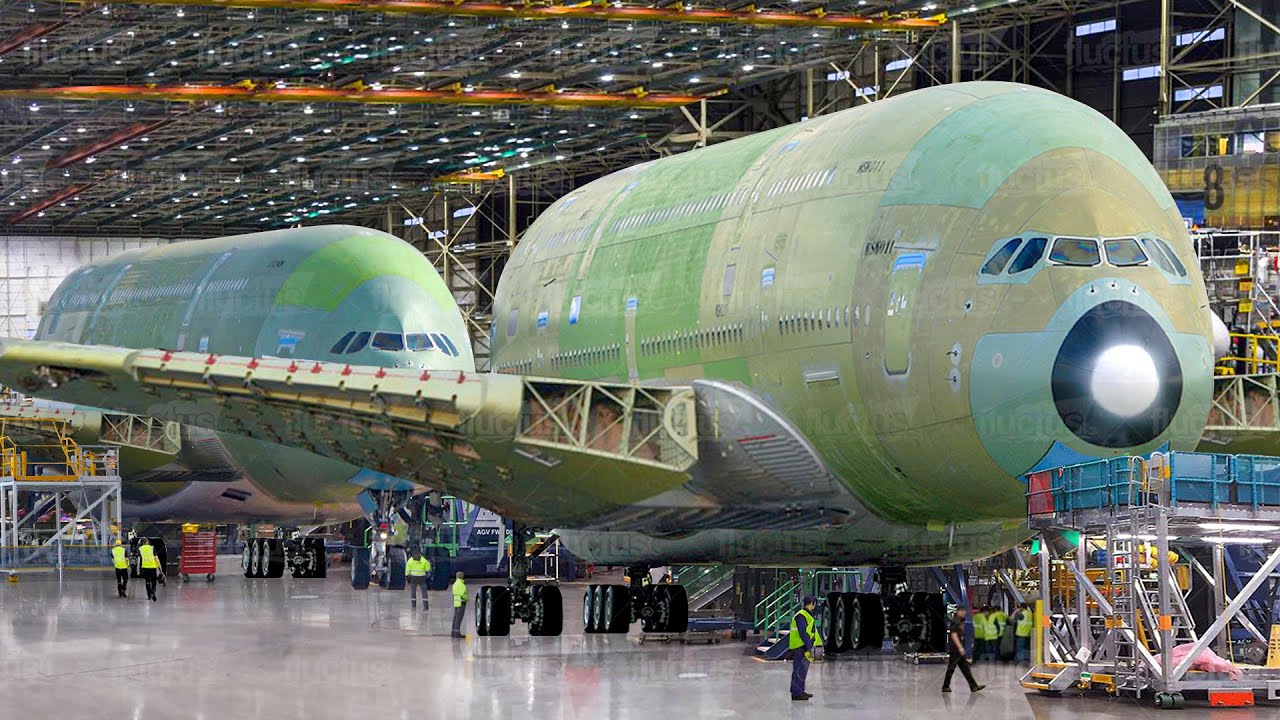
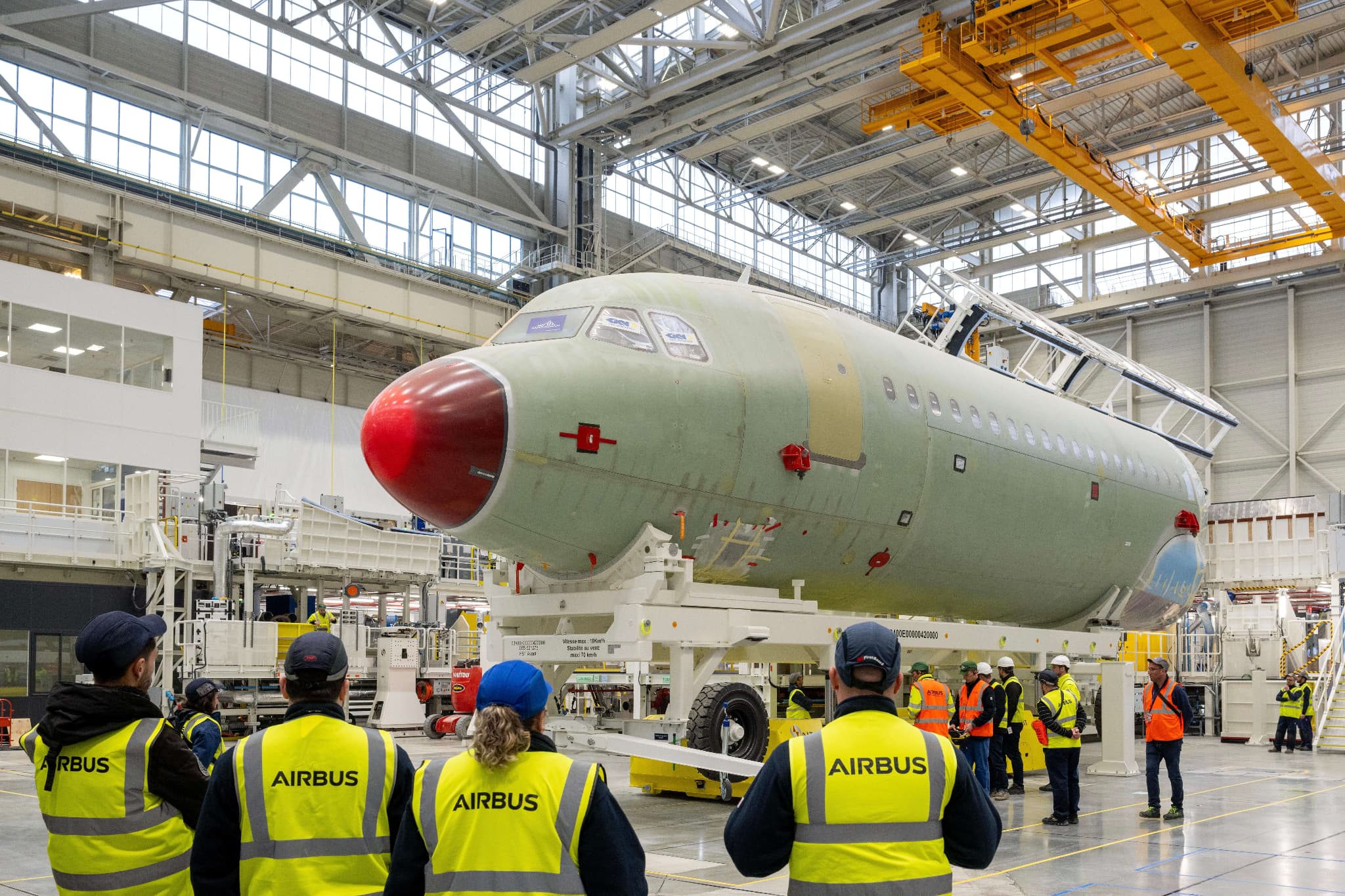


Authors of selected papers from ISORC 2025 will be invited to submit an extended version of their work for the Special Issue on AI-Driven Real-Time Distributed Computing for the Edge-Cloud Continuum review and possible publication in the Elsevier Journal of Systems Architecture: Embedded Software Design (JSA).
As the world moves beyond 5G and toward the era of 6G, the integration of Digital Twins (DTs) has emerged as a transformative paradigm for next-generation networks and real-time IoT systems. Digital twins enable advanced modeling, simulation, and optimization of network infrastructures, offering unprecedented capabilities in automation, predictive maintenance, and intelligent decision-making.
The DT4NGN-IoT workshop aims to bring together researchers, practitioners, and industry experts to explore the latest innovations and challenges in leveraging digital twins for future networks and IoT ecosystems. This workshop will provide a platform for discussing novel AI-driven, distributed, and real-time digital twin architectures, with applications spanning intelligent edge computing, self-adaptive networks, ultra-reliable low-latency communications (URLLC), cybersecurity, and sustainability in beyond-5G/6G systems. Topics of interest include, but are not limited to:
The main goal of this half day workshop is to address these challenges and present advanced and innovative tools, design and modeling techniques, and algorithms for diverse Real-Time Distributed IoT applications and services. Contributions addressing both theoretical and practical applications, including, but not limited to, the following topics, are welcome for submission:
- DT as a New Frontiers for Future Networks
- Emerging Cloud, Edge, Fog, and Embedded ML for Digital Twin
- Middleware Technologies for Network Digital Twins
- Network Digital Twin in IoT
- Federated learning, TinyML, and Edge AI for Real-Time Control in DTs
- Intelligent Edge, Fog and Cognitive aspects of DTs beyond 5G
- DT for Software-Defined Networks and Network Virtualization
- AI/ML-Powered DT Virtualization for IoT Beyond 5G Networks
- 5G-Powered Digital Twin for Cellular and Mobile Networks
- DT-based efficient resource allocation in 5G and 6G
- DT-aware resource allocation and task scheduling in IoT networks
- Blockchain-based trust mechanism for Digital Twin in Real-Time IoT
- Traceability supported by distributed ledgers for DT emerging Networks
- DT-enabled Cybersecurity and Privacy-Preserving for 5G and beyond
- AI-Powered Digital Twins for Anomaly Detection and Localization
- DT for Complex Systems in Big Data and Cognitive Computing
- DT Modeling and Simulation, Ontology, UML, SYSML, Model-Driven Engineering
- DT with Model Driven Systems Engineering
- Middleware modernization for DT on the Edge-Cloud Continuum
- Digital Twins and Web of Things
- Ubiquitous and Pervasive Digital Twins
- Digital Twin in Advanced Real-Time IoT Control:
- Application of DT in virtual environment industrial product's production
- Modelling and Simulation in production and assembly process
- The whole process management of industrial design based on the digital twins
- The whole process management of industrial design based on the digital twins
- Data integration of advanced industrial production value chain
- DT for Intelligent Methodologies and Technologies for Highway Infrastructure
- DT with Model Driven Systems Engineering
- Transition towards Smart Factories and Smart Manufacturing
- Recent Developments and Future Perspectives of DT-enabled Smart Industrial Systems
- Transdisciplinary approaches to digital manufacturing for Industry 4.0
- Predictive maintenance mechanism of the DT in industrial manufacturing
- Application of DT in spinning intelligent factory
- Application of the digital twin in multi-dimensional intelligent manufacturing space
- DT in Zero Defect Manufacturing
- Digital Twin in IoT Application Domains such as (but not limited to):
- AR/VR, 6G, XR and the Metaverse
- Smart Cities, Metaverse, Future Transportation Systems, Connected Vehicles, UAV, Connected Drones
- Smart farming and Smart Agriculture, Agri-Food Sector, Integrated Energy Systems,
- Construction Industry, industry 3D Visualization Platforms, Industrial Product's Manufacturing
- Spinning Intelligent Factory, Robotics, Electric Vehicle, Structural Integrity
- Supply Chains, Smart Production and Logistics, DT in Zero Defect Manufacturing, Predictive Maintenance
- Healthcare and precision medicine, Digital Therapeutics, etc.
- Transition towards Smart Factories and Smart Manufacturing
- Recent Developments and Future Perspectives of DT-enabled Smart Industrial Systems
- Transdisciplinary approaches to digital manufacturing for Industry 4.0
- Predictive maintenance mechanism of the DT in industrial manufacturing
Authors are invited to submit original, unpublished research papers. Papers must be written in English and strictly following IEEE style. The IEEE conference paper templates can be found here. Papers must be submitted in PDF format via the electronic submission system through the HotCRP system. All accepted paper will be indexed and published in the IEEE Explore repository.
Two types of submissions are accepted:- Regular Research papers: contributions should describe original work (up to 6 pages including all text, figures, references, and appendices).
- Short Papers and position papers: Research in progress, tools presentations, and new ideas (up to 4 pages including all text, figures, references, and appendices).
Submitted papers will be evaluated according to their rigor, significance, originality, technical quality and exposition, by at least three distinct members of an international program committee. At least one author of each accepted paper must register and participate in the workshop. Registration is subject to the terms, conditions, and procedures of the main conference .
- Submission deadline: March 09, 2025
- Authors' decision notification: March 14, 2025
- Camera-ready deadline: March 20, 2025
- Registration: April 20, 2025
- Workshop date: May 26, 2025
Coming Soon
We acknowledge support from the following.
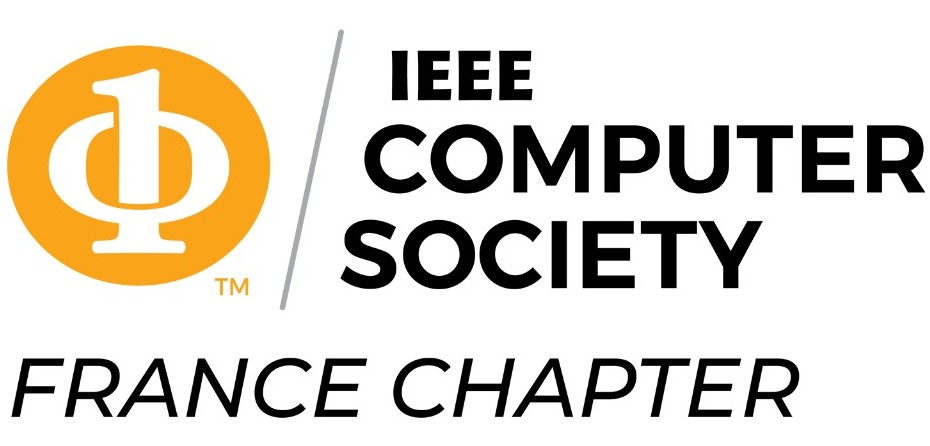 |
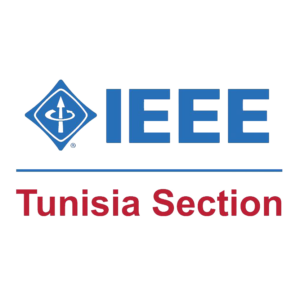 |
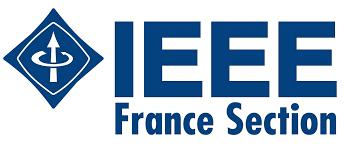 |
